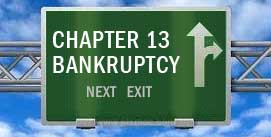If you’re filing Chapter 13 bankruptcy, it’s possible that your life could change significantly during the course of three to five years. The possibility of change negatively impacting the ability to make payments is one of the fears that debtors have when considering Chapter 13 bankruptcy . The good news is that the bankruptcy code already addresses how these changes should be approached.
Let’s take a look at how some life changes can impact a bankruptcy case:
Birth Or Adoption Of A Child
If a Chapter 13 bankruptcy debtor gives birth to or adopts a child during the course of their case, they may have an opportunity to make changes to their repayment plan. Because an additional family member will increase the household size and expenses of the family, the debtor can change their household size and inform the bankruptcy court of any additional expenses. These changes may cause the debtor’s monthly payments to decrease, or depending on how the new family member impacts the debtor’s finances, they may be allowed to convert to a Chapter 7 bankruptcy .
Divorce Or Separation
Three to five years is a long time, in that time some couples separate and/or divorce. If this happens in your Chapter 13 bankruptcy the change may qualify you for a reduced monthly payment or a conversion to Chapter 7 bankruptcy. If the bankruptcy was filed jointly with your spouse, you can request that the case is separated, or if it is in your best interests, you may request that your bankruptcy is dismissed.
Death Of Debtor Or Spouse
If a debtor or the debtor’s spouse dies during a Chapter 13 bankruptcy, the case does not automatically end. The bankruptcy will continue and the trustee will determine if payments can be continued. If not, the trustee may convert the case to Chapter 7 bankruptcy and grant a discharge. This process will posthumously protect the debtor’s assets from creditors.
